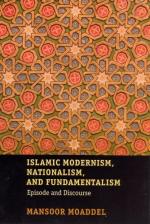|
This section contains 5,719 words (approx. 20 pages at 300 words per page) |

|
The related terms liberalism and modernism, when occurring in a religious or theological context, are usually no less imprecise than when used with other references. As T. S. Eliot put it: "Liberalism is something which tends to release energy rather than accumulate it, to relax, rather than to fortify. It is a movement not so much defined by its end, as by its starting point; away from, rather than towards, something definite." Accordingly the content of a set of doctrines or principles described as liberal depends upon that of the "orthodoxy" from which such liberalism diverges, or which it relaxes or qualifies. Much the same applies to modernism, which refers not simply to what exists today but to something deemed to be distinctive of today or of the more recent past, and so to be commended as such, in contrast to what represents a settled tradition...
|
This section contains 5,719 words (approx. 20 pages at 300 words per page) |

|



